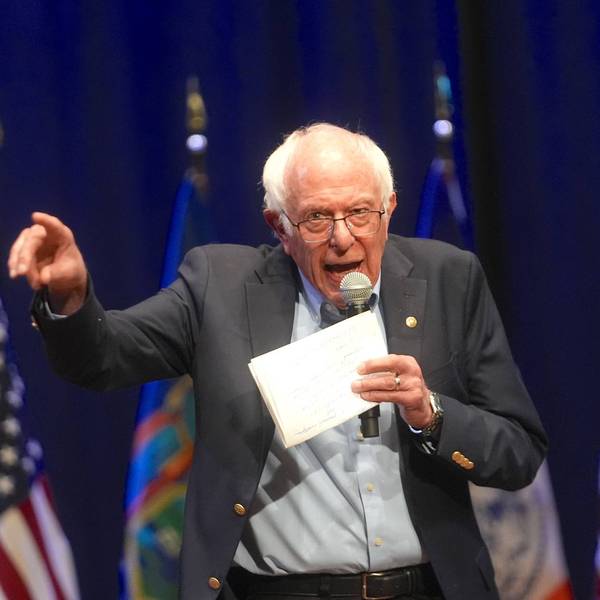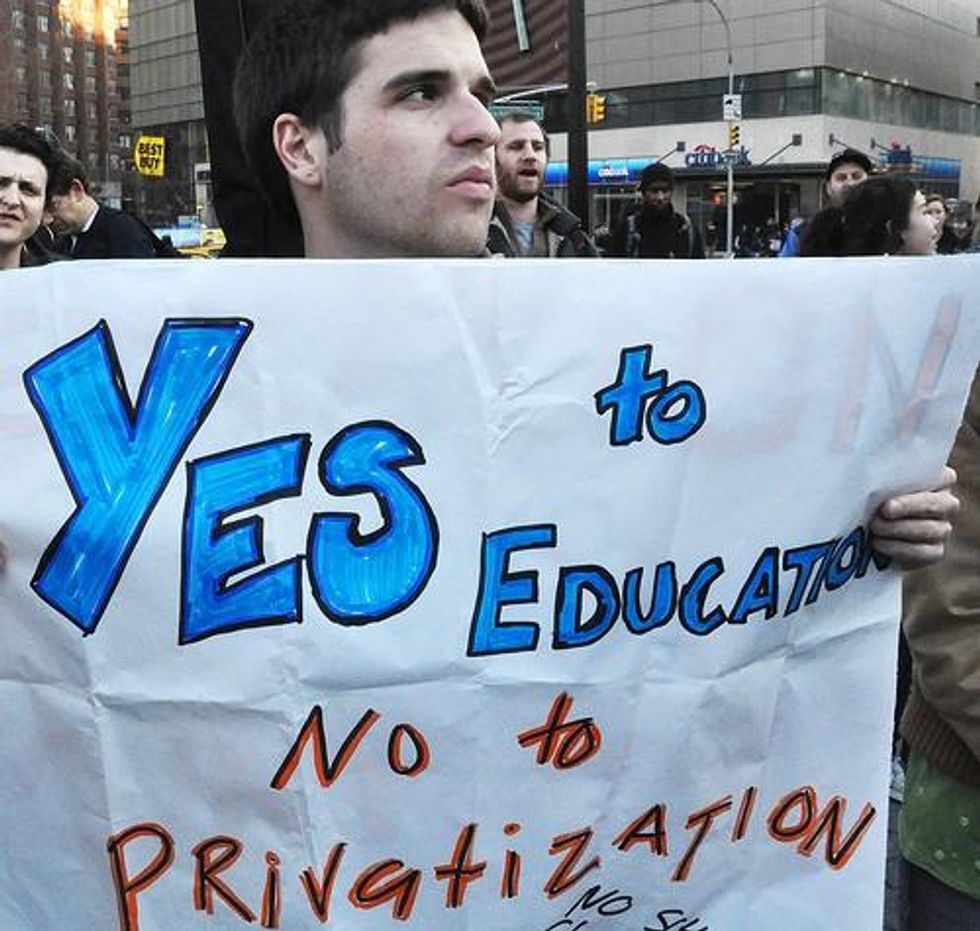When I hear Mitt Romney's seductive rhetoric about school choice, I think back to the beginning of Milwaukee's voucher program -- the country's largest and oldest voucher initiative.
In particular, I remember Nov. 14, 1990. On that day, I learned an important lesson on the difference between rhetoric and reality.
I dropped my two daughters off at day care and began my job at he Milwaukee Journal. The city editor, a gray-haired Irishman who filled every stereotype of the gruff newshound, called me over. I was to do an on-the-scenes report at a private school receiving publicly funded tuition vouchers.
Like most people, I hadn't given much thought to this new and unique initiative. Vouchers had been promoted as "school choice" for poor black kids, and seemed a worthwhile experiment.
I grabbed my reporter's notebook and headed to the school. I sat in on some classes, which seemed little different than at schools across the city. But teachers approached me in the hallways with vague stories of turmoil and advised I attend a parent meeting the following evening.
I went to the meeting, only to be blocked by a somewhat beefy lawyer. He told me, in no uncertain terms, that it was a private school and I would not be allowed to attend the meeting.
I huffed and I puffed, but the lawyer was right. Private schools do not have to follow Wisconsin's open meetings and records laws.
I never found out what happened at the meeting, although within a few weeks the teaching staff was slashed by a third and the principal was gone.
I did, however, learn the first of many lessons about school vouchers. In essence, vouchers are a mechanism to funnel public dollars into private schools. They are an abandonment of both public education and our country's democratic ideals.
And now we have Romney promising a national voucher plan to save American education.
Romney knows the term "voucher" is politically toxic, so instead he uses the rhetoric of "choice." The heart of Romney's agenda: students will be able to use federal education dollars to attend any school--public or private, religious or non-sectarian, charter or digital.
"I want the kids that are getting federal dollars ... to be able to go to the school of their choice," Romney said at the first presidential debate. It was not a new position, first outlined in his education white paper last May. At the GOP convention, school choice was the only K-12 education reform mentioned in Romney's acceptance speech.
Romney's plan would launch an unprecedented shift of federal dollars into private schools. It would also be an about face from demands for increased accountability. By their very nature, private schools do not have to follow the same requirements as public schools in releasing information.
FALSE PROMISES
Milwaukee's program has long been a model for other cities and state programs, from Cleveland, to New Orleans, Florida, and Indiana. Beginning in 1990 with 300 students in seven non-sectarian schools, by 2012 vouchers had expanded to almost 23,000 students in more than 100 private schools, most of them religious-based. In size, the voucher program now rivals Wisconsin's largest school districts, but with minimal public accountability or oversight.
For more than twenty years, supporters of vouchers for private schools have had a chance to prove their assertion that the marketplace and parental choice are the bedrocks of educational success, that unions and government bureaucracy are the enemies of reform, and that vouchers will lead to increased academic achievement.
After two decades and more than $1.27 billion in public funding, however, the Milwaukee voucher program's enticing promises have not materialized.
The first apples-to-apples comparison between Milwaukee's private voucher and public schools wasn't until 2010, a testament to how difficult it is to demand public transparency from private schools. State test results showed that students in private voucher schools performed significantly worse in math and about the same in reading as their public school counterparts. Recent results have been similar.
Nor has Milwaukee's voucher program met the promise of increased parental satisfaction. A longitudinal study on achievement, in its final report, noted that only17.5 percent of the voucher students remained in a voucher school after five years. The comparable figure for the public schools was 43.5 percent.
Fundamentally, however, the issue of school vouchers goes beyond education achievement and parent preference. Above all, vouchers are an abandonment of this country's commitment to public schools--a commitment rooted in an understanding that strong democratic institutions require a citizenry educated not just in the three Rs but also in their civic responsibilities.
Every state constitution in the country enshrines the right to a free and public education for all children--an honor that is not bestowed on other requisites for life, liberty, and the pursuit of happiness, whether housing or employment or healthcare.
In the current debates on vouchers, there is strikingly little discussion of the relationship between democratic values, civic responsibility, and public education. Instead, education is treated as a mere commodity, with parents and children reduced to mere consumers.
Do our urban public school systems have deep-seated problems? Without a doubt. But at the end of the day, they are the only institutions with the commitment, capacity, and legal obligation to teach all children.
In Milwaukee, vouchers have created separate and unequal school systems. The education of students with special educational needs is just one example. The percentage of special ed students in Milwaukee's public schools is about 20 percent. At the private voucher schools, the comparable figure is less than 2 percent.
"All together, the 102 voucher schools are serving a special education population that is equal to what the Milwaukee Public Schools serves in just one of its district schools: Hamilton High School," Milwaukee superintendent Gregory Thornton noted last year.
Vouchers were promoted in the 1990s as a way to help poor black children escape failing schools. But that rhetoric has disappeared in Milwaukee. Voucher supporters have expanded vouchers to middle-income families and have made clear they want to make vouchers available to all, including millionaires. Vouchers for poor children was just a first step.
For more than twenty years, I have listened to the voucher movement's seductive rhetoric of "choice" and "parent power." If I didn't know better, I might proclaim, "Sign me up today!"
Milwaukee, however, has more than two decades of reality-based vouchers. The lesson from this heartland city?
Vouchers are a vehicle to funnel tax dollars into private schools. Using the false promise of "choice," they are an unabashed abandonment of public education and of our hopes for a vibrant democracy.




